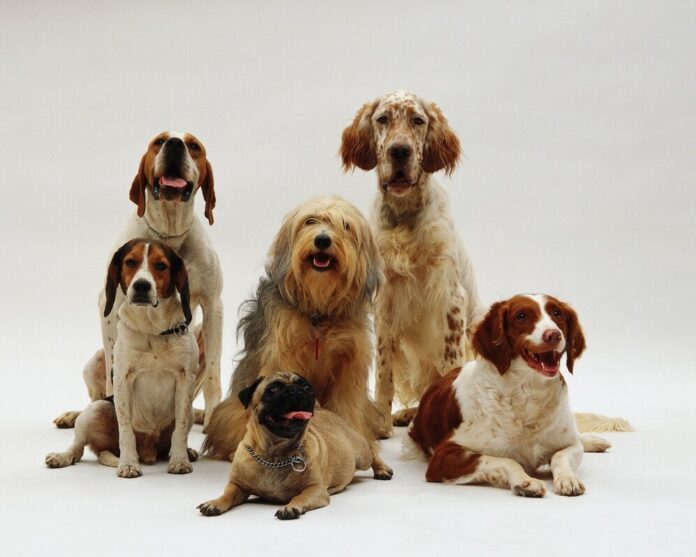Choosing a family dog means finding the right balance between temperament, size, energy, and care needs. One breed often considered is the poodle, which offers unique qualities that make it a top choice for many families. However, how do poodles compare with other popular breeds when it comes to family life? In this article, we’ll explore the various qualities of poodles and other dog breeds to help you make the best decision for your family.
Poodles: Intelligence and Adaptability
Poodles are known for their intelligence. Many people find them easy to train due to their quick learning abilities. They often adapt well to different family dynamics. Whether you have small children or teenagers, poodles can fit into various household environments without too much difficulty.
If you’re interested in cuccioli barboncino, you can visit Mater Dei Regina Pacis Kennel for high-quality poodles selected for their character and beauty. The kennel specializes in toy and dwarf poodles, ensuring healthy and well-behaved companions for your family.
Temperament: Poodles vs. Other Breeds

Poodles tend to have a gentle disposition. They are known to be affectionate without being overly demanding of attention. Many families appreciate this balance, as it makes poodles versatile in homes with children or other pets.
In contrast, some breeds, such as German Shepherds, have a more protective nature. While loyal and loving, they might require more training to ensure they remain well-behaved around children. Labrador Retrievers, another popular family breed, are playful and friendly but can be more energetic than poodles.
For families looking for a dog that can adapt to a quieter home environment, poodles might be a better fit. Their moderate energy level means they can enjoy playtime without becoming too hyperactive.
Coat Care and Maintenance: Poodles vs. Other Breeds
Poodles have curly coats that require frequent maintenance to keep them looking their best. Many owners opt for professional grooming services, but some prefer to manage their poodle’s grooming at home.
Poodles are considered hypoallergenic, making them a great choice for families with allergy concerns. Their coat sheds less compared to other breeds, reducing the amount of allergens in the home.
Other breeds such as Golden Retrievers and Beagles have coats that shed more frequently. While they may require less overall maintenance in terms of professional grooming, they often need regular brushing to control shedding. The key difference is that poodles need more consistent grooming to avoid matting, but they tend to leave less hair around the house.
Hypoallergenic Qualities: A Big Advantage for Poodles

Families dealing with allergies often seek out hypoallergenic breeds. Poodles are one of the top choices in this category. Their curly coat traps dander, preventing it from spreading as easily around the home. For individuals sensitive to allergens, these dogs can be a relief compared to more shedding-prone breeds like Huskies or German Shepherds.
While no dog is entirely hypoallergenic, poodles offer a more manageable option for those who want a pet without suffering from constant allergic reactions. In this aspect, they stand out significantly from many other family-friendly dog breeds.
Energy Levels and Activity Needs
Families with children often want an energetic dog that can keep up with active play sessions. Poodles strike a good balance in this area. They enjoy being active and engaging in play but are not overly hyperactive. This makes them adaptable to both energetic and more laid-back family environments.
Some breeds, like Border Collies, have high energy levels and require a lot of physical activity. If your family leads a very active lifestyle, these breeds may be more suitable. However, for a family looking for a pet that enjoys activity without requiring constant exercise, poodles can be an ideal match.
On the other hand, breeds like Bulldogs have lower energy levels and might not engage as much in playtime.
Size Variations: Poodles vs. Other Breeds
Poodles come in various sizes, including toy, miniature, and standard. This range gives families more options depending on the space available in their home and the ages of their children. Toy and miniature poodles are perfect for smaller homes or families who want a dog that doesn’t take up too much space. Standard ones offer a larger option without being as bulky as some larger breeds.
Larger breeds, such as Saint Bernards or Great Danes, can be a challenge for families with small children or limited living space. Though gentle giants in nature, their size makes them less suitable for homes without ample space.
Loyalty and Bonding with the Family
Poodles bond deeply with their families. They are known for being loyal and loving without becoming overly dependent or anxious when left alone for reasonable periods. This makes them excellent pets for families who may have varying schedules but still want a dog that feels like part of the family.
In contrast, breeds like Chihuahuas can form strong attachments but may become overly protective or anxious when their family is away. This can lead to behavioral issues if not managed carefully.
Intelligence and Training
Training is an important factor when choosing a family dog. Poodles excel in this area. Their intelligence makes them one of the easiest breeds to train. They respond well to positive reinforcement and enjoy mental challenges. Many families find that they pick up commands quickly, which helps with managing behaviors such as jumping, barking, or pulling on the leash.
While other breeds like Labradors are also highly trainable, some breeds may present more challenges. For example, Beagles, while affectionate, can be stubborn and more challenging to train. This difference in trainability can be a deciding factor for families looking for a well-behaved dog without needing extensive training sessions.
Lifespan and Health Considerations

Poodles generally have a long lifespan, often living between 12 to 15 years. They are a relatively healthy breed, though regular veterinary care is essential to monitor for any genetic conditions. They are particularly prone to hip dysplasia and eye conditions, so early detection and care can help manage these issues.
Other breeds may have shorter lifespans or specific health concerns. For instance, Bulldogs often suffer from breathing difficulties due to their brachycephalic faces, while larger breeds like Great Danes have shorter lifespans and are prone to heart issues.
Conclusion: Poodles as Family Pets
When comparing poodles to other dog breeds, several factors stand out. Their intelligence, adaptability, hypoallergenic qualities, and range of sizes make them suitable for many family dynamics. While they require regular grooming and maintenance, their hypoallergenic coat and low-shedding nature make up for this in homes where allergies are a concern.
Other breeds offer different advantages, such as lower grooming needs or higher energy levels for more active families. Ultimately, choosing the right family pet depends on your household’s specific needs, activity level, and lifestyle. They are often a top contender for families looking for a loyal, trainable, and adaptable companion that fits well into various environments.









